 |
Marthame and Elizabeth Sanders lived in the
mostly Christian Palestinian village
of Zababdeh from August, 2000, through December, 2003. Volunteers with
the Presbyterian Church (USA), their ministry was one of ecumenical support
to the Church in the land of its birth. Salt of the Earth documents
the lives of nine Palestinian Christians living in the northern
West Bank. This film grew out of a desire among their Palestinian
neighbors to share their stories, and a desire among Christians in the
West to hear them. The Sanders describe the project as "a labor of love,
a response to the graciousness, warmth, hospitality, and welcome we received
from our Palestinian neighbors and colleagues." Clips from nine
of the segments are available below. |
|
 |
Advent is a time of waiting,
and that is just what Mughannam is doing - waiting to continue his education,
waiting to begin a new life living abroad. But he knows that leaving
behind his hometown of Zababdeh will be
tough, leaving behind his students, friends, and family. |
Video Clip
|
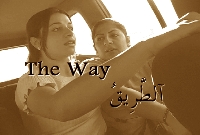 |
Sylvia is a sophomore in
college
majoring in Pharmacy. Every two weeks, she braves a difficult
and dangerous journey from her home town of Tubas
to study in Nablus. Though the journey
should be a 20 minute drive, it can take Sylvia hours - if she makes it
at all. |
Video Clip
|
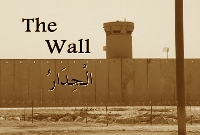 |
Each Friday, the Christian
community of the West Bank border town of Jalame
gathers in a congregant's home for worship. Sa'ed is one of them.
But
the Wall weighs heavily on his mind,
which has confiscated his agricultural land and his family heritage. |
Video Clip
|
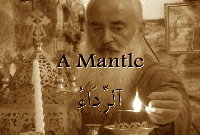 |
As an Orthodox priest,
Fr. To'mie's weekend is dedicated to his ministry. On Fridays, he
leads the Divine Liturgy and shares in fellowship with the minority
Christian community in Tubas. On Saturdays,
he prays in with the "living stones" of the ancient church of Burqin.
On Sundays, he is priest in his home town of Zababdeh.
He shares a challenging message for
the Church in the West. |
Video Clip
|
 |
Ninth grader Jeries and
sixth grader Elia are typical boys whose days are defined by school,
homework, soccer, karate, TV, church, Sunday School. However, these
brothers' lives in Nablus are also demarcated
by soldiers, tanks, F-16s, and missiles. |
Video Clip
|
 |
Yvonne remembers how she
and her family became refugees as they
fled Haifa during the war in 1948. She visits the Church of the Ten Lepers
in Burqin, where her family sought refuge
from the war. She tries to return to Haifa to visit her childhood
home. |
Video Clip
|
 |
Two years ago,
Firas was an unemployed sweat shop laborer in his home town of Zababdeh.
The Melkite church his grandfather pastored remained closed, and his Seminary
training unused. That all changed in 2002, when he was ordained to
the priesthood. The church has since reopened, a sign of life and
hope during a dark time. |
Video Clip
|
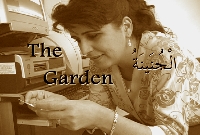 |
Sawsan is a mother of
two, a school secretary, and a college
student. She faithfully attends church in her hometown of
Jenin
weekly. Her daily travel with her two children to the nearby school
in Zababdeh is harrowing, an uncertain
and sometimes fearsome passage past
tanks and soldiers. |
Video Clip
|
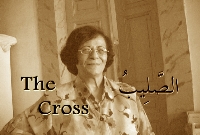 |
Afaf has lived a simple
life of Christian witness, as a school teacher, daughter, and church volunteer
in her native
Nablus. For her, it is
as simple and as challenging as following Christ's command to "take up
thy cross." |
Video Clip |









